What started in 2002 as a quest to educate Americans and help them achieve financial security and peace of mind using the Bank On Yourself method came to uncover an all-American treasure more exquisite than I ever imagined.
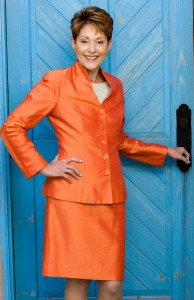
The revelation was gradual.

At first, my concentration was tightly focused on helping people reach their savings and retirement planning goals and objectives using a seldom-trumpeted, but proven variety of whole life insurance. After laborious and extensive research, a system was created that would permit almost anyone – rich and poor, young and old – to wean themselves from dependence on banks, credit cards, auto leases, mortgage companies and the risks and volatility of the stock and real estate markets and traditional retirement plans.
People could sleep well at night knowing that their savings were growing – safely and predictably – even when the markets tumbled.
Soon, the American public began to come around to my way of thinking – or at least that’s what I believed at the time. People from all walks of life made initial inquiries, read up on Bank On Yourself materials, met with the specially trained advisors and then made the choice to bank on themselves.
Clients became our most potent marketing tool, as they began sharing the Bank On Yourself concept with their family, friends, neighbors and colleagues, as well as increasing their own commitment to this proven savings and money management philosophy.
I’ll admit I was pretty pleased with myself…
To be honest, I was pretty self-satisfied both by the consistent growth in the number of folks who were using the concept, and by what we professed to be our innovation. There was no question that our Bank On Yourself precepts were changing how people viewed investing and financial planning.
Little did we know…
While I began with the singular focus of helping men and women achieve their financial goals and dreams, over time the lenses of my colleagues and I were drawn not so much to the planning aspects of our mission as to the people aspect.
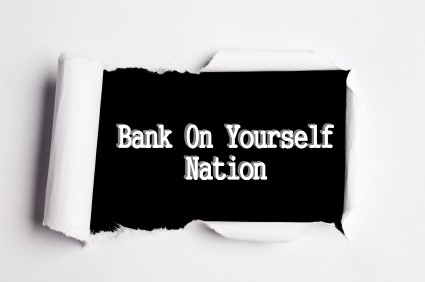
Extraordinary people. Admirable people. People who long before I founded this business were already mapping a wise and effective course for both their personal and financial lives. True, prior to my arrival these stalwart citizens didn’t have the specific knowledge and tools that the Bank On Yourself system provides, but they were relying on their own skills long before I ever began to brand, package and promote the concept.

These individuals were not converts to “my” way of thinking
Hardly. I came to realize, faced with overwhelming evidence accumulated by serving hundreds of thousands of Bank On Yourself clients, that Bank On Yourself has been and remains viable solely because of the strength of our clients’ own character – their values, their vision, their intuition, their choice of lifestyles.

Like the European explorers who credited themselves with discovering the “New World,” I thought I had discovered the Bank On Yourself Nation when, in fact, it was a thriving realm long before my arrival on the scene.
For others like myself who have been slow to detect the presence of Bank On Yourself Nation, I am proud to introduce it here and declare my membership in this unheralded, unincorporated community of fellow citizens whose day-to-day life values and actions – not solely their saving and investment strategies – define and give soul to the Bank On Yourself philosophy and all that it has produced.
At heart, those who belong to the Bank On Yourself Nation are self-reliant, self-confident, independent thinkers and doers. Does that description ring true for you?
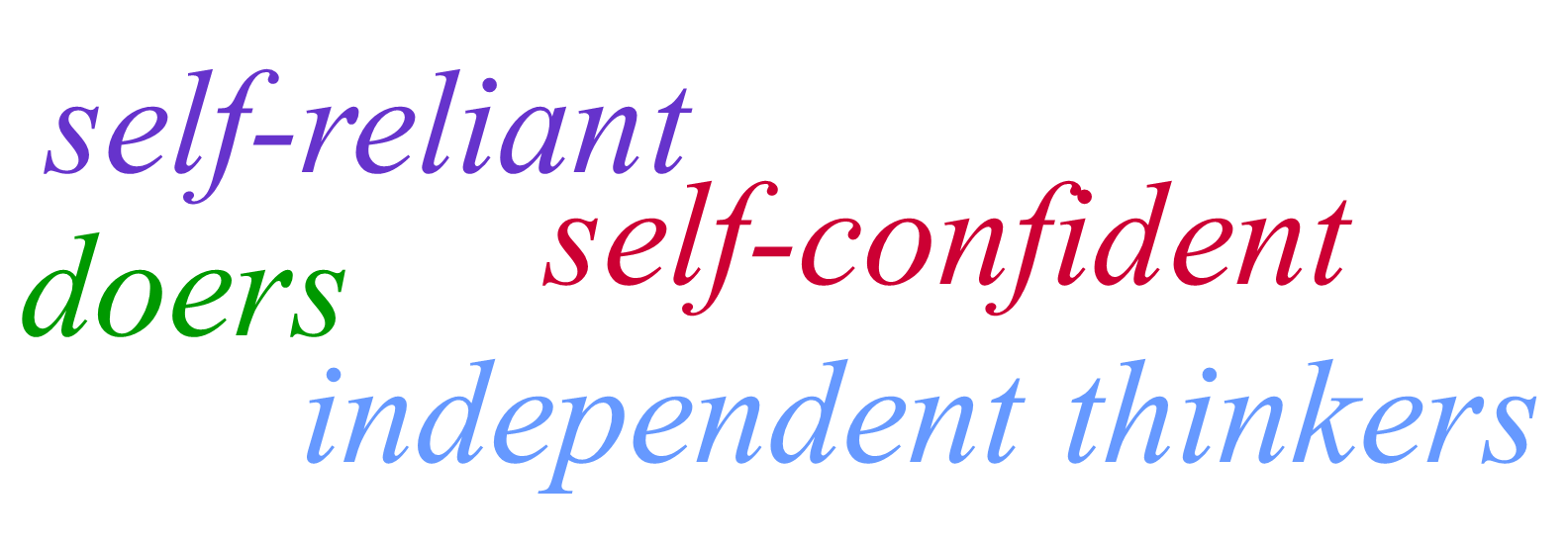
We wake up each morning determined to tightly control our own personal, family and financial destinies. We place our trust in our own abilities, knowledge and learning capacity above all would-be counselors.
For us, there are no shortcuts or fast tracks to success. We do our homework. We carefully weigh major life choices. We are long-term visionaries and we are patient. We are the dependable tortoise, not the erratic hare.
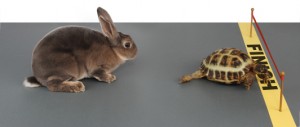
Along our lives’ paths, we work hard, ask oodles of questions, emphasize mind over emotions, steer clear of volatility and risk, and prioritize family.

We are not of a singular political persuasion, economic class, race or ethnicity, age group, gender or religion. Some of us are born to the Bank On Yourself Nation; others migrate to it later in life.
For a great many of us, self-reliance is about much more than ourselves
It is the underpinning of a strong, prosperous society that values equal treatment and opportunity for all people, as well as recognizes their God-given right to life, liberty and the pursuit of happiness.
America’s greatest leaders and thinkers – men and women spanning our history from George Washington to Susan B. Anthony to Martin Luther King, pledged their lives, their fortunes and their sacred honor to principles very much congruent with the values prized today by members of the Bank On Yourself Nation.
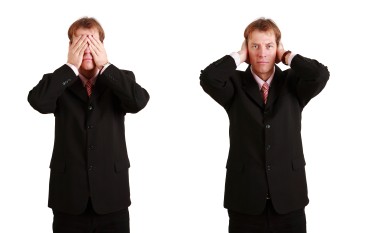
Clearly, I didn’t invent the concept of self-reliance! But we at Bank On Yourself feel we have a great deal yet to contribute to its furtherance.

As I discovered when I set about alerting the American public to the many benefits of the Bank On Yourself system, there are so many observers – especially financial advisors, regulators and other pundits – who have eyes, but do not see – who have ears, but do not hear.
The Bank On Yourself Nation surrounds us and yet largely remains invisible to, and unserved by, the mainstream media – and the financial news media in particular. Rather, their attentions are drawn principally to what’s flashy and trendy – i.e. the hare.
For these reasons, our objective at Bank On Yourself has expanded
We will continue first and foremost to educate the public on reliable pathways to achieve their financial goals and objectives, as we always have. Why?
Because financial freedom is the backbone of genuine personal freedom!
But moving forward, we will also volunteer our efforts and offices to serve as a virtual town square for the vast community of like-minded individuals who share common values and character traits, but have no central resource to nourish, reinforce and validate their wisdom and belief system.

In the weeks and months to come, we will use our resources, website and other lenses, to reveal how Bank On Yourself thinking permeates every aspect of the lives of its members: financial, of course, but also educational standards, family relationships, work performance, recreation, charity and more.

Our intention is to showcase Bank On Yourself values and profile Bank On Yourself financial and lifestyle adherents. And we plan to facilitate communication and interaction among the members of our Nation.
Back in 2002, my colleagues and I went in search of people who would follow our advice and our approach to financial and retirement planning. What we discovered is much more potent and life-affirming:
A vast, influential community of individuals who rely on themselves, yet are ready to share their good fortune with the world.
We are pleased to proclaim the Bank On Yourself Nation: A way of living, a philosophy of savings and money management, and even a code of honor.
Do you resonate with the values and traits of the Bank On Yourself Nation?
We want to hear from you! Please answer any one or more of the following questions in the comments box below:
1. Self-reliance is a core tenet of the Bank On Yourself Nation. Please share with us an example from your life where you relied on your own ability and knowledge, rather than on others, or on so-called “experts.”
2. Who or what in your life most influenced the development of your self-reliance and self-confidence?
3. How does your savings discipline differ from that of your friends, family or co-workers?
4. How do you evaluate financial risk in your personal and/or business life?
5. America has been suffering a prolonged economic downturn and is struggling with an unprecedented level of government debt. Politicians differ dramatically in their views of how to resolve both problems. Where do you stand and which course do you believe will best restore our country’s economic prowess?


Great job, Pamela!
You are right, I have come to know, that no one can truly be free unless they have power over their financial futures.
The information you are providing is invaluable to the millions of folks who have been brainwashed into thinking that only Ivey-league educated advisors are capable of offering them guidance.
Keep up the good work!
I have reservations about becoming a Bank on Yourself participant because of the tenuous standing of the dollar. Specifically , the insurance company that you use to implement the strategy has to deal in dollars, take those dollars and invest them some where in dollars (or other fiat currencies).
What guarantees the insurance company (policy holders) will survive financially, a collapse of the dollar (or any other fiat currency) when they become worthless due to reckless spending by governments who will not exercise fiscal self restraint.
We have not even reached the inflation stage, much less hyperinflation stage of this dollar decline and already banks and insurance companies are declaring bankruptcy .
No fiat currency ever conceived in human history has survived the ravages of political
malfeasance and the dollar will be no exception.
If there is a way to assure the insurance company will not be affected by fiat currency collapse I would be much more inclined to become a Bank on Yourself
participant.
I have addressed the issues of how the Bank On Yourself method will hold up under various economic scenarios on these two posts:
Bank On Yourself, a strategy for any economy?
How will the debt crisis affect Bank On Yourself?
No one knows what direction the dollar will go and it may not continue to fall. The economic environment can change on a dime, as it has in the past.
Last year, it was reported that Asian countries were “actively buying dollars to check it’s fall against their currencies.” The reason given was that exporters “can’t handle a drop in profitability and competitiveness,” if the dollar drops too far.
I have a colleague who was convinced the dollar was becoming worthless, so when he sold his company last year, he required the buyer to pay him in Euros. Needless to say, his plan didn’t work out the way he expected.
The point is that no one can accurately predict the future. But since you must “park” your money SOMEPLACE, you’d be hard-pressed to find a safer, more advantageous place to put your dollars – in good times OR bad – then in a Bank On Yourself-type policy.
i think i’am to up in age 70, income is a bit sparse ??????????? thank you barry
I am now 78 and income is very sparse. thank you for the newsletter. I look forward to receiving it . I am a retired Bank President , and would like to say if we ran our bank like they do today we would be out of business. Fred
Terrific piece! I find that I encounter people who’s values reflect my own in many aspects of my life. People at work. Through community activities. Through other friends. And some people who don’t. It is easy to tell them apart. No value judgment implied – folks can live their lives as they wish. But those of us in Bank On Yourself Nation know who we are and I for one am overjoyed to help out my fellow “citizens”!
Keep up the good work Pamela!
I have to agree with John. I do not understand how the insurance plan works under high inflation. If I invest $100,000 in a plan, I might feel confident about my financial future. But if the $100,000 is ravaged by inflation and is worth only $10,000 in today’s buying power, my retirement plans look tentative at best. I understand that investing the $100,000 in many other typical dollar denominated investments would not solve this problem. But like some, I am looking at inflation hedges for a portion my of investment funds. How do the Bank-on-Yourself plans keep up with inflation?
Please see our response to this issue.
regarding Mr. john sutton’s October 26th, 2010 2:15 pm comments regarding the dollar’s devaluation – your right on. Significant discomfort at this end in jumping in for similar reasons
Please see our response to this issue.
All of your qustions deserve answers but I would like to say…I have been with BOY for only a year and a half… I do not worry HOW I am going to save anymore rather, how much can I start another policy with. I do try to talk with people about BOY boy is that fun…lol.
The country I believe must realize that we have the power to change anything we want…but you have to get involved…just as with BOY.
Keep up the good work I say:)
David
I think you are on to something here………I believe our society’s view of self reliance has changed greatly over the last several generations. Many are expecting to be “bailed out” and looking to our government for the answers and resources. I would imagine that those interested in BOY would probably NOT be in this group, as they have CHOSEN to save in an “unconventional” manner. I am not yet a BOY saver, but I’m leaning that way.
Our government seems to believe that creating programs and spending, and taxing along the way to do so, can stabilize our economy. I believe that facilitating CONSUMERS spending, hopefully as locally as possible, would spur sales growth, therefore jobs growth, therefore economic growth. We may have gotten to the point where we are do to global sourcing of products and services which was supposed to result in lower prices for consumers, but instead generated corporate profits and weakened the domestic jobs base and lowered consumer spending power along the way. They can take interest down to zero, but no income, no purchasing. If the dollar weakens significantly, we’re all screwed.
My self reliant tendencies came from my parents I guess. I was taught that if you wanted something, you work and save until you can buy it. I began with paper routes and mowing lawns at 12 years old. I was advised against using credit except to buy a home. If you lose your job, you go find another one, even if the work is not great.
I would call my savings disipline poor, except when I use automated deductions or payments to save. This is also moderated by a tight budget based on our family decision that my wife would stay home and raise our children, now 18 and 11. Many times it seemed like nothing extra to save?
More lifestyle support is great, thanks!
Steve
Pamela often jumps in on these discussion. I anxiously await her response to the questions regarding devaluation of the dollar…
I was very excited about BOY but although your book mentions advisers in Canada I was told that the program is not available in Canada. I keep hoping that one day I will receive an email telling me that you have expanded into Canada.
Thanks
Claire
BOY has been a life saver for me. After leaving several jobs and watching my income fall I felt absolutely hopeless. At the same time I watched my 401K shrink by 40% and my house lose 100k in equity. I felt like I was fast falling into a hole so deep I would never get out.
That is when a friend of mine invited me to a Nelson Nash get together. What I learned about BOY’s changed my life and the way I look at money and myself forever. This is truly one of those things I consider a blessing in my life. I was able to open a policy and use it to help me during a difficult time in my life, during the downsizing of a company and to cover the birth of a child.
Take time to research and feel comfortable with a BOY policy. Then take a leap of faith and buy a policy. I have not had buyers remorse once and I am finding more and more ways to save than I thought possible.
Stephen
My dad thought like this, both in hs businesses and personally. Thanks for expanding the audience.
I wish that the plans were just a little more out in the open with examples. If you had a chart stating if you invest at age 20,30, 50, 60 and you get a policy value of the amount you will pay about this amount and if the value stays at about 8% you could possibly accumulate this amount at your disposal. I like the Bank Of Yourself approach but most people need to know exactly how much money a month to contribute for a nice windfall. More and more people who hear about the video and the site are waking up to the possibility of starting a policy today. Thanks
Dozens of factors affect the growth of the cash value in a policy – even in policies designed for 2 different people of the same age. It is no exaggeration when we say no two policies are alike.